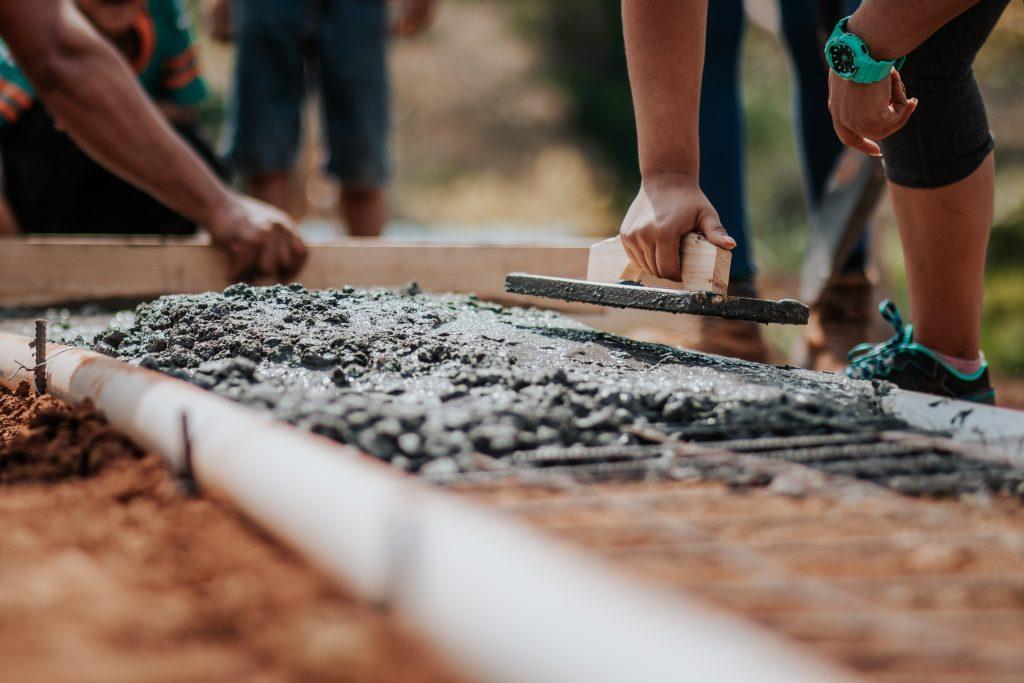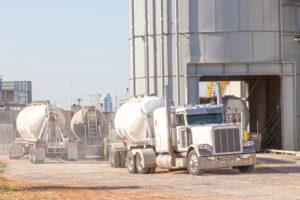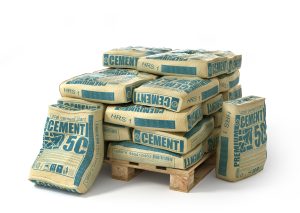Cement: it’s the glue that binds our world together. From skyscrapers to sidewalks, it’s a crucial ingredient in countless construction projects.
But did you know there’s more than one type of cement? In this article, we’ll delve into the basic different types of cement and their uses.
What is Cement, and How is It Made?
Cement is a binding material that sets, hardens, and binds together other materials, such as gravel and sand. By combining a specific blend of limestone, clay, and a few other ingredients, cement manufacturers then heat the mixture to a high temperature in a kiln. The end result is a small, hard pellet known as a ‘clinker.’ The cement manufacturer then grinds the clinker into a fine powder. And that’s the basic way you make cement. For a more in-depth look at cement production, check out this resource from USGS1.
What are the Main Types of Cement?
There are several different types of cement, each with its unique properties and uses. Let’s take a look at a few of the main cement types:
- Ordinary Portland Cement (OPC)
- Portland Pozzolana Cement (PPC)
- Rapid Hardening Cement (RHC)
- Sulphate Resisting Cement (SRC)
Let’s look at these different types of cement, the characteristics that set them apart, and how contractors use each type.
How is Ordinary Portland Cement Used?
Ordinary Portland Cement, or OPC, is the most common type of cement. Made with a carefully controlled mix of calcium, silicon, aluminum, iron, and other ingredients.
OPC is a general-purpose cement that works well in most construction applications. That’s because of its strength and durability. That’s why we see Ordinary Portland Cement so often used in buildings, bridges, and foundations. And it’s also the primary type of cement in manufacturing concrete. For more information about OPC, visit this helpful resource from Science Direct.
What Makes Portland Pozzolana Cement Different?
Portland Pozzolana Cement, or PPC, is a variant of OPC.
When you need cement that can stand up to sulfate and alkali, PPC is your go-to. This variation of OPC is fortified with pozzolanic materials like fly ash, rice husk ash, or volcanic ash. These materials make it more resistant to chemical erosion and reduce the risk of cracks in structural elements. Contractors often use PPC in hydraulic structures, marine structures, and construction in coastal areas.
Learn more about some of the new and unique uses of Portland Pozzolana cement here.

What is Rapid Hardening Cement, and Where is It Used?
As the name suggests, Rapid Hardening Cement (RHC) sets faster than OPC. It gains strength in a short period, making it ideal for construction projects that need strength fast. Contractors often use Rapid Hardening Cement in roads, pavements, precast concrete elements, and fast-track construction projects that need to be operational in a short period.
Here’s some more information about RHC, its applications, admixtures, and comparison with ordinary Portland cement.
What is Sulphate Resisting Cement, and Why is it Used?
Sulphate Resisting Cement (SRC) combats sulphate attacks—reactions between sulphates (compounds of sulfur and oxygen found in soil, water, and air) and concrete components causing expansion and cracking. By reducing tricalcium aluminate in its composition, SRC resists these attacks, enhancing durability.
So, where do contractors use SRC the most?
Sulphate Resisting Cement is ideal for structures like foundations, seawalls, pilings, aquatic-related projects, and sewage works exposed to high sulphate environments. Learn more about the many ways you can use SRC here.
How do I Choose the Right Type of Cement for My Project?
Choosing the right cement for your project depends on several factors, including the required strength, cure time, durability, and environmental conditions. For instance, if you’re working on a project in a coastal area, you might choose PPC for its resistance to chemical erosion. If you’re working on a road that needs to be ready quickly, you might opt for RHC.
As you can see, there are many different types of cement. And each type is specifically designed to accomplish a particular task.
So, always remember to consider the unique requirements of your project when it comes time to choose the type of cement you need.




